H-WORK consortium brings together broad multi-disciplinary expertise that unites the leading knowledge in the field of occupational health, methodology, policy development and communication, while at the same time provides additional expertise in advanced technologies and innovation.
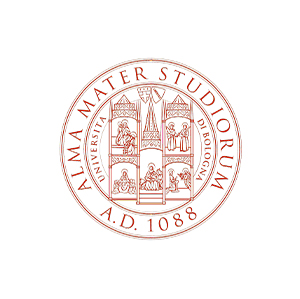
Alma Mater Studiorum – University of Bologna (UNIBO)
Founded in 1088, University of Bologna is the oldest university in the Western world. It counts 86.500 enrolled students, 1.763 faculty members, 2.128 research fellows and post-docs, 1.261 PhDs. Through its multi-campus structure, University of Bologna is not only present in the Emilia-Romagna region of Italy (Bologna, Ravenna, Forlì, Cesena, Rimini) but it has also permanent headquarters in Buenos Aires (Argentina) and Shanghai (China). UNIBO is the first university in Europe for international mobility (Erasmus+ 2018), and counts 87.8M€ across 274 projects in FP7 (58 as coordinator), 45M€ in 2015 and 90M€ in 2018 for international and national funding, 86.6M€ across 213 projects funded under Horizon2020 (54 as coordinator), and 5.2M€ across 14 projects in “Societal Challenges 1 – Health, Demographic Change and Wellbeing and the Innovative Medicine Initiative”.
In the H-WORK project, UNIBO will take care of project management and coordination, as well as exploiting the H-WORK Toolkits introducing new products and services. UNIBO will also ensure that the H-WORK project will meet the ethics requirements. UNIBO research groups participating in H-WORK belong to the Department of Psychology, the Department of Educational Science and the Department of Medical and Surgical Sciences.
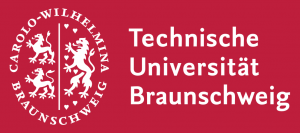
Technische Universitaet Braunschweig (TUB)
Technische Universität Braunschweig (TUBS) is the oldest “Technical University” (comparable to an institute of technology in the American system) in Germany. TUBS was founded in 1745 as Collegium Carolinum and is a member of TU9, an incorporated society of the most renowned and largest German institutes of technology. TUBS has 19.981 students: 19.981, 241 full professors, 2.023 scientific personnel, and 1.389 administration staff, 94 trainees. It is commonly ranked among the top universities for engineering in Germany. Department of Psychology is high ranked in the CHE university ranking. Interdisciplinary research is conducted in close collaboration with external organizations. As one of very few research institutions of its type in the world, the university has its own research airport. The department of psychology cooperates with the department of Professional and Personnel Development and Occupational Health Prevention. They offer (mental) health prevention activities for all employees of TUBS.
In the H-WORK project, TUBS team (work group psychotherapy and diagnostics) contributes to designing mental health diagnostic toolkit and conducting interventions in public workplaces.

The University of Sheffield (USFD)
Sheffield University Management School is a leading business school with Triple Crown accreditation world’s leading accreditation bodies: AACSB, AMBA and EQUIS. One of the largest departments in the University of Sheffield, Sheffield University Management School has a world-class reputation for high quality teaching, ground-breaking research and cutting-edge thinking. With almost 29,000 of the brightest students from over 140 countries, learning alongside over 1,200 of the best academics from across the globe, the University of Sheffield is one of the world’s leading universities. A member of the UK’s prestigious Russell Group of leading research-led institutions, Sheffield offers world-class teaching and research excellence across a wide range of disciplines. The Institute of Work Psychology (IWP) is part of Sheffield University Management School and is the research group participating in the H-WORK project. IWP is an evidence-based and scientific organisation with particular expertise in assessing the outcomes of programmes in workplaces.
In the H-WORK project, USFD will integrate the consortium expertise, setting the ground for the development of the H-WORK Toolkits, as well as coordinate the intervention phase in the Spanish intervention sites.

Universitat Jaume I de Castellon (UJI)
Universitat Jaume I is a public university in the north of the Valencian Community, a region on the European Mediterranean coast. Established in 1991, UJI has positioned itself as a friendly university characterised by its personal attention, smooth-running management procedures and the high levels of participation of its members in university life, due, among other things, to its convenient size, with about 15.000 students, and its integrated, modern, functional and sustainable campus. Additionally, UJI contemplates 1.400 teaching and research staff members and 611 administrative and service staff, and includes 4 faculties, 28 departments, 14 university institutes, more than 80 research groups, and 30 central services, including the Office for cooperation in research and technological development and the European and international projects Office. UJI is orientated towards innovation as a means of socially, culturally and economically developing its environment through the creation and critical transmission of knowledge, the promotion of the potential of its human capital, and a proactive orientation towards both its area of influence and its international presence. UJI has been considered the tenth best Spanish university according to THE World University Rankings, and the third Spanish university in highly cited research staff.
In the H-WORK project, UJI is represented by the research group “WANT – Psychosocial Prevention and Healthy Organizations” (directed by Dr. Marisa Salanova) at the Department of Developmental, Educational, Social Psychology, and Methodology, Faculty of Health Science. WANT research team is an evidence-based and scientific group specialized in the study of psychosocial health and development of positive interventions in the workplace. UJI will lead the WP2 CREATE, which main task is to integrate the consortium expertise and develop a theoretical basis, setting the ground for the development of the H-WORK Toolkits (HAT, HIT, HET). Additionally, UJI will contribute to defining, tailoring, and conducting interventions in SMEs and public organizations.
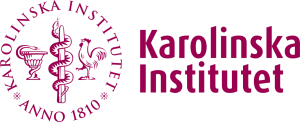
Karolinska Institutet (KI)
Dedicated to improving people’s health through research and higher education, Karolinska Institute selects the winner of the Nobel Prize in Physiology or Medicine. The KI Institute of Environmental Medicine focuses on health of working populations, their attendance behaviour (absenteeism, presenteeism) and the work environment, work performance and productivity.
In the H-WORK project, KI will perform the economic analysis of the implemented organisational interventions, such as cost-effectiveness and budget impact analysis.
University of Amsterdam (UVA)
With 8,000 staff members, over 30,000 and an annual budget of 850M€, the UvA is one of Europe’s largest broad-based research universities. It offers 150 programmes at Bachelor, Master, Research Master and Dual Master level, some of which in Joint Degree with other Universities and many of which with English taught tracks. Annually, some 550 PhD degrees are awarded and 9,500 scientific articles published. As a research-intensive institution, the UvA works in close collaboration with other national and international universities by joint research projects or research groups, in the context of which data, knowledge, and infrastructure is being shared, thereby creating synergies that improve its quality of research. The UvA currently participates in almost 150 H2020-projects. In almost half of these projects, the UvA acts/acted as coordinator.
In the H-WORK project, UvA researchers from the Work & Organizational Psychology department will coordinate the implementation of various interventions in the testbeds. Furthermore, the UvA will support partners in other countries with customizing their implementation plans. In addition, UvA will take the lead in implementing interventions in the Dutch test beds, i.e. University of Amsterdam itself and Rijkswaterstaat (executive agency for the Ministry of Infrastructure and Water management).

Norges Teknisk-Naturvitenskapelige Universitet (NTNU)
The Norwegian University of Science and Technology (NTNU) was established in 1910 in Trondheim and is today Norway’s largest multi-faculty university with 42.000 students and 3.500 academic staff members. NTNU is a university with an international focus, with headquarters in Trondheim and campuses in Ålesund and Gjøvik including nine faculties and faculty level groups and 55 departments. NTNU has a main profile in science and technology, a variety of programmes of professional study, and great academic breadth that also includes the humanities, social sciences, economics, medicine, health sciences, educational science, architecture, entrepreneurship, art disciplines and artistic activities. NTNU participates in 135 H2020-projects.
In the H-WORK project, NTNU is represented by the research group “Healthy workplaces” at the Department of Psychology, Faculty of Social and Educational Sciences. NTNU will lead the WP3 COLLECT, and our main task is the development of the H-WORK Assessment Toolkit (HAT) for data collection and adapt it for the use in different cultural contexts. More specifically, we are responsible for creating a protocol for conducting a needs analysis in each intervention site, establish an action plan and this will contribute to defining the interventions to be implemented along with proximal outcome measures for evaluation. In addition, we will create and conduct a quantitative surveys with both distal, proximal and objective data for evaluation before, straight after and in a three month follow up after each intervention.
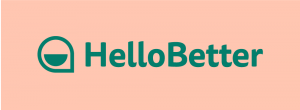
HelloBetter by GET.ON
HelloBetter by GET.ON originates from a European research project at Leuphana University Lueneburg (2011-2015) from which it derived international best-practice principles in designing effective internet-based interventions. As an online mental health service provider, Hello.Better is revolutionising psychotherapy by providing convenient and scalable treatments to everyone. It offers digital mental health interventions in the areas of stress, depression, anxiety, alcohol, insomnia, vaginism, pain and diabetes. Its cooperation partners include health insurance companies, employers and universities.
In the H-WORK project, Hello.Better will mainly take the lead on the Data Management Plan, and will create and manage the H-WORK Databank. It will also provide four different e-Mental Health interventions on an individual level for managing stress, sleep, depression and alcoholism, and will contribute to dissemination and policy making activities.
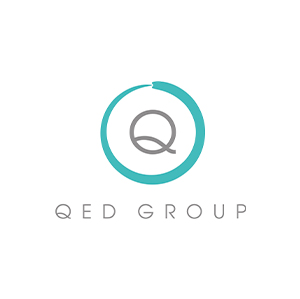
Qed Group a.s. (QED)
QED GROUP is the Central European leader in innovation in human resource services. With over 20 years of experience, and a strong customer base that includes several companies, QED is changing the way that managers develop themselves and teams improve their performance. Currently, QED is becoming a global player by building an international network of licensed partner companies offering the QED solutions such as Sociomapping or 4 Elements Personality Inventory in their home countries.
In the H-WORK project, QED is the lead partner for implementation in the intervention sites in the Czech Republic. As such, it will implement principally group level interventions using Sociomapping to analyse and strengthen team communication and team cohesion.
Azienda Unità Sanitaria Locale di Bologna – IRCCS Istituto delle Scienze Neurologiche (AUSL)
The Bologna Local Health Unit is a public organisation based in the region of Emilia-Romagna. It is part of Italy’s national health care system, a regionally based health service that provides universal coverage to citizens, legal foreign residents and immigrants. The main objective of AUSL is to promote health and wellbeing of its population, both individually and collectively, by providing high quality primary, secondary and tertiary health care services to the population of the Bologna Metropolitan Area, covering 2.914 km2, 45 municipalities and 876.884 citizens. It counts 8.427 employees, 9 hospitals, 8 emergency units, 40 primary care centres and 160 outpatient care points.
In the H-WORK project, AUSL will be the main Italian intervention site.
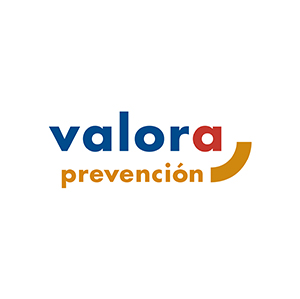
Valora Prevención SL (VALORA)
As an external prevention service, VALORA is a company specializing in occupational risk prevention. It has an official accreditation to advise, manage and adapt organizations to comply with all the legal requirements in terms of prevention of occupational hazards. As such, VALORA prevents work accidents and occupational diseases by detecting risks, removing or minimising them, promoting preventive culture and healthy habits, training and informing, helping meet legal obligations.
In the H-WORK project, VALORA will contribute to creating, releasing and promoting the project’s products and services.
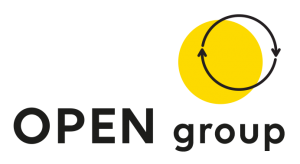
OPEN Società Cooperativa Sociale O.N.L.U.S. (OPEN)
Open Group is a new generation social enterprise. Its key words are innovation, crossover and interdisciplinarity. OPEN social enterprise is multi-sector, and it operates in social and educational fields, in management of cultural assets, as well as communication and information. OPEN communication agency is specialized in video making, graphic design, content management, social management, public relationships, events.
In the H-WORK project, OPEN will take the lead on communication and dissemination, policy briefs and recommendations.
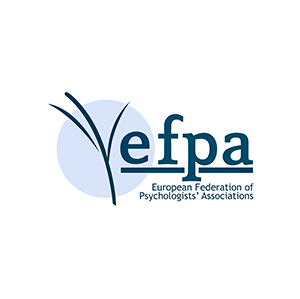
European Federation of Psychologists’ Association (EFPA)
EFPA is the leading Federation of National Psychologists Associations. It provides a forum for European cooperation in a wide range of fields of academic training, psychology practice and research. There are 38 member associations of EFPA representing about 350.000 psychologists. The member organisations of EFPA are concerned with promoting and improving psychology as a profession and as a discipline, particularly, though not exclusively, in applied settings and with emphasis on the training and research associated.
In the H-WORK project, EFPA will analyse current EU policies regarding mental health promotion in the workplace, collecting relevant information about the legal frameworks in order to underline strenghts and weaknesses of the actual legislations. EFPA will also create, manage and exploit the H-WORK Toolkits and Innovation Platform. It will also provide recommendations and policy briefs for employers, occupational health professionals and policy makers, organise workshops and a final event.
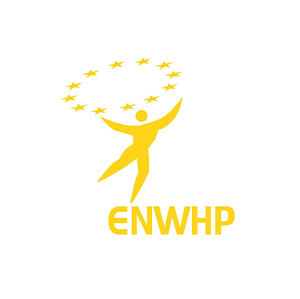
European Network for Workplace Health Promotion (ENWHP)
The European Network for Workplace Health Promotion (ENWHP) has been a frontrunner in Workplace Health Promotion since 1996. It is a platform for all stakeholders interested in the improvement of workers’ health and wellbeing. By carrying out joint initiatives, ENWHP has developed good practice criteria for WHP for many different types of workplace. It has also supported the establishment of infrastructures for WHP in the Member States. In October 2016 the ENWHP was incorporated as a non-political and not-for-profit association; opening membership to organisations and individuals coming from the European Union and EEA (European Economic Area) and beyond. ENWHP is committed to improve workplace health and wellbeing and to reduce the impact of work related ill health on the European workforce. All members are committed to the vision & mission of ENWHP – Healthy employees in healthy organizations. ENWHP membership is open to ministries of labour and health, institutes of occupational health and safety and academic and research institutions as well as to public and private sector employers and interested individuals. ENWHP has been active in the field of mental health promotion with a Europe wide project to promote good practice.
In the H-WORK project, ENWHP will develop tailored good practice criteria through documents, experiences and expertise from its members and partners. It will also disseminate the Results of the project, ensuring direct link with contacts across EU countries, advertising and disseminating the H-WORK project information through ENWHP website, newsletter and social media (Twitter, LinkedIn), organising a workshop during the final event.

